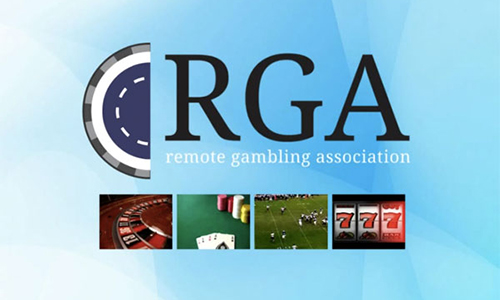RGA Head Says Affiliates Low on the Gaming Regulation Priority List
GamblingInsider.com reported Monday that the Chief Executive of the Remote Gambling Association (RGA), Clive Hawkswood, while speaking at the Betting on Sports Conference in London on Friday, discussed where how online gaming regulation will handle affiliates. Short answer: it won’t for a while.
His thoughts weren’t meant as a slight to affiliates, but rather as reflection of the current reality of regulation.
“As regulators have gradually started licensing across Europe, affiliates have been treated as a secondary issue. Because they’re not that well informed about the industry, most regulators haven’t grasped how important and central affiliates are to the industry,” he said.
“While they’re getting to grips with what you might say are the bigger issues, they’re starting to move down on to that next level,” Hawkswood continued. “The Gambling Commission very recently published what was almost like a catch-up discussion paper on virtual currencies, eSports and social gaming. The next time they do one of these discussion papers, they will try to pull together issues they currently don’t have enough confidence talking about, which affiliates could be dragged into.”
It makes sense. Only the most seasoned gaming regulators know much of anything about online gambling. The majority of legislators know nothing and have to be educated slowly. Asking them to understand the business of online gambling affiliates would be pointless right now. Instead, let them handle the more important issues necessary to get the overall industry regulated and then guide them through lesser issues like affiliates.
Hawkswood actually advised against formal affiliate regulation, saying, “….once they’ve got their claws into you, there will be no end to it….”
Instead, he recommended that affiliates create a trade association to handle issues.
How About We Talk About Affiliates
For those of you who are wondering, “What in the hell is an affiliate,” allow me to explain. An affiliate is essentially a marketer for the online gambling sites. It is typically independent, not related to the gaming site aside from the business relationship. Affiliates get paid by the gambling sites for getting players to sign up. The links to poker rooms you see here on FlushDraw? Those are affiliate links. If someone clicks one of those and then registers and makes a deposit at the corresponding poker room, we make a few bucks. So go ahead, click away. You know you’re itching to do it.
Back before the poker boom, affiliate sites were generally garbage. They were often just banner farms filled with gaudy, flashing ads for online poker rooms and casinos. There was no value added there at all; they simply hoped they could get search engine hits and curious visitors.
 Things began to change around 2004. Affiliates began to think of creative ways to attract eyeballs to their sites and, in turn, get people to click through to the poker rooms. I began my career in the online poker industry with a large affiliate, joining it during its first few months of existence. This affiliate, I believe, was the first to figure out that it could generate a ton of customers by rewarding people who signed up with the poker rooms with some of the money the affiliate got paid by said poker rooms. Originally, the affiliate was paid a flat fee by the poker rooms, returning much of that its customers via poker-related gifts, such as poker chip sets. Those gifts eventually evolved into things like gift cards and free money and then into points that could be spent on gifts (again, gift cards and poker-related items) on the site. It’s a similar system to what we are familiar with nowadays with online shopping cash back sites.
Things began to change around 2004. Affiliates began to think of creative ways to attract eyeballs to their sites and, in turn, get people to click through to the poker rooms. I began my career in the online poker industry with a large affiliate, joining it during its first few months of existence. This affiliate, I believe, was the first to figure out that it could generate a ton of customers by rewarding people who signed up with the poker rooms with some of the money the affiliate got paid by said poker rooms. Originally, the affiliate was paid a flat fee by the poker rooms, returning much of that its customers via poker-related gifts, such as poker chip sets. Those gifts eventually evolved into things like gift cards and free money and then into points that could be spent on gifts (again, gift cards and poker-related items) on the site. It’s a similar system to what we are familiar with nowadays with online shopping cash back sites.
It didn’t take long for rakeback affiliates to spring up. Rather than receiving a flat fee from the poker rooms, rakeback affiliates received a percentage of a player’s action as payment. They then turned around and gave that player a smaller percentage of the payment in rakeback.
While the affiliate industry has not been without its problems, it has generally worked well for the online gambling sites. Rather than spending truckloads of marketing dollars to potential mixed results, the sites are able to get other sites and business people to specialize in marketing for them while (and I’m simplifying here) only spending money when a paying customer is brought on board.
Affiliate marketing has also been a controversial part of the poker news business. If you visit poker news sites (don’t visit others, just stay here), you will notice that it is hard to find an advertisements from any “mainstream” non-gambling companies. Historically, these types of companies just don’t want to associate with gambling. Those that do are often related to other vices, like cigarettes or alcohol. Thus, the way poker news sites have been able to make money is through affiliate links, whether it is through ad banners, poker room reviews, links within news stories if a poker room is mentioned, or even advertisements in news article form.
Over the years, some poker news sites have been criticized, and deservedly so, for posting puff pieces about its poker room advertising partners, or worse, not running news-worthy stories if it shines a negative light on an advertiser. For a long time, Flushdraw didn’t even have advertising, so we never had any sort of conflict of interest. In order to monetize the site and keep it running, we recently made changes by adding affiliate links and the like, but we are proud to not let that affect our reporting. We are determined to remain unbiased and not let any sort of advertising or revenue source dictate what we write or when we write it. Trust me, I was made to write fluff pieces about an advertiser on another site years ago; I have yet to regain the piece of my soul that was lost as a result. I was not a happy camper. Put it this way: I had to write an article about a poker celebrity’s birthday celebration in Las Vegas just because that person was sponsored by our advertiser. I think I spent my paycheck on extra pillows to scream into.



















COMMENTS